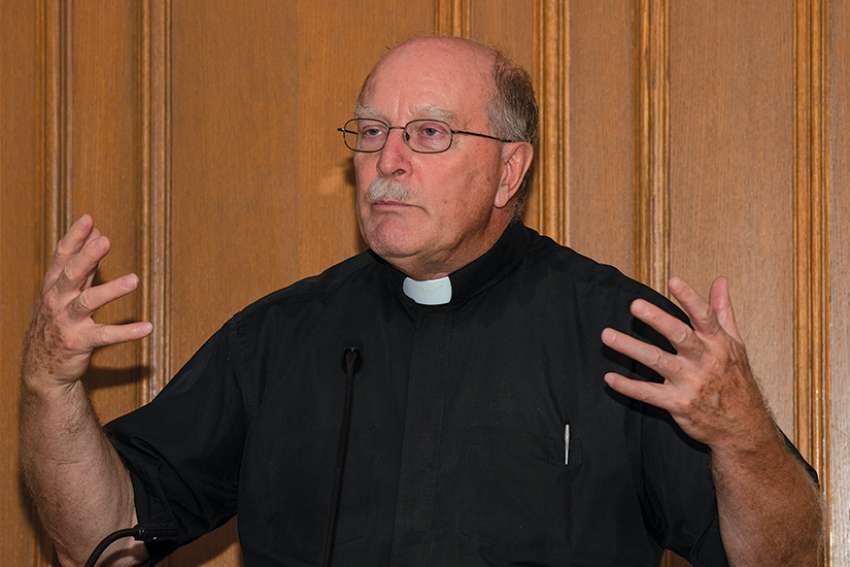These days the 20,000 home visits made each day by St. Elizabeth’s 9,000 nurses, personal support workers and others are mostly focused on people on the other end of life. Thirty to 40 per cent of their patients are dying at home.But despite this shift from beginnings to endings, St. Elizabeth Health Care chief clinical executive and vice president Nancy Lefebre wants to go “back to the future,” and she’s using “HOPE” to get there.
HOPE stands for “Home, Opportunity, People, Empowerment,” a model of care that’s meant to reconnect St. Elizabeth nurses and their patients with the human and communal aspects of care.
“Because we’re in people’s homes, our immediate response is to what that person needs, what their families need,” Lefebre told an audience Oct. 10 at the third annual Moira Ste. Marie Memorial Lecture sponsored by the Catholic Women’s League’s Toronto Diocesan Council.
Ontario Ministry of Health funding for St. Elizabeth Healthcare’s home visits is not geared toward the HOPE model. As in most of health care, the system monitors and pays for specific, identifiable, clinical actions — such as measuring blood pressure or administering medications. It doesn’t pay for conversations, for smiles, for relationships.
“We’ve become fairly task-oriented, sad to say, in home care,” Lefebre said.
Lefebre’s HOPE model is an attempt to make nursing more human, both for patients and for nurses. It gives nurses more independence, involves families in planning and directing care, and values the intangibles of a nurse-patient relationship.
It also brings with it a healthy dose of spiritual care. St. Elizabeth’s four full-time spiritual care professionals are now making 8,000 patient contacts per year. The result has been “a significant reduction in emergency room and hospital visits,” said Lefebre.
Those human dimensions of care are often featured in lofty statements from health care organizations. But rarely do they feature in the day-to-day job, said University of Toronto nursing professor Judith Shamian.
Shamian urges a more holistic paradigm that recognizes, “there is a relationship between spiritual well being and health outcomes.”
For Catholic health care, preserving the centrality of spiritual care in the face of a health care system driven by technology and budgets is a central challenge, said bioethicist Fr. Mark Miller.
“Spiritual care is intrinsic to our mission,” Miller said. “Spiritual care is a treasure that we’re going to have to build up a bit.”
The essence of spiritual care is the relationship between patients and the people who care for them.
“The very core of caring for people is being present to them,” said Miller. “When you pay attention to people you have to deal with spiritual care.”


